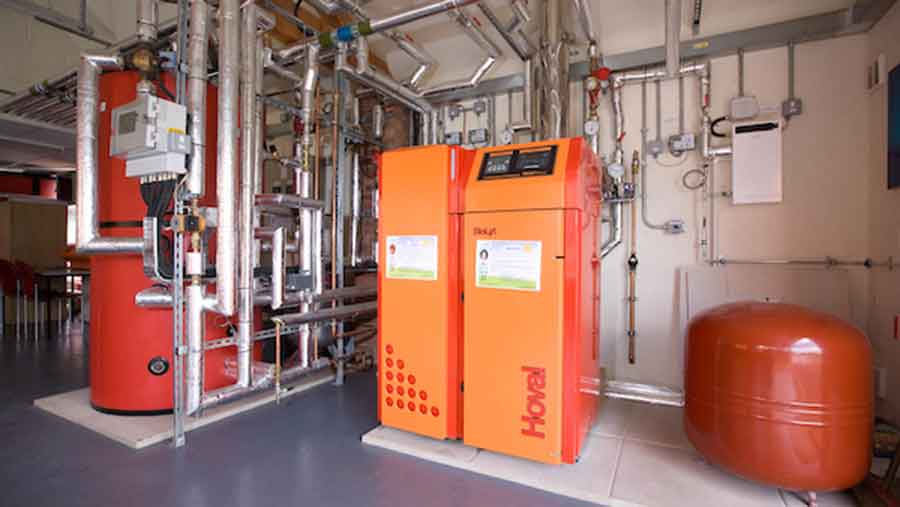RHI claimants suffering ‘unfair’ treatment, says UFU
 Biomass boiler © Tim Scrivener
Biomass boiler © Tim Scrivener Farmers in Northern Ireland with biomass boilers are battling cashflow problems and stress, following changes to payments made under the Renewable Heat Incentive (RHI) scheme.
Farm leaders say that farmers who legitimately entered the scheme have been stigmatised and treated unfairly as officials react with embarrassment to what critics of the RHI call the “cash-for-ash” scandal.
The Ulster Farmers’ Union said a recent consultation on the future of RHI tariff arrangements was flawed and that “logic, fairness and common sense” have been put to one side.
See also: Calls for probe into cash-for-ash scheme
It follows a political scandal in 2016 which blew up after a whistleblower claimed that farmers were being paid large sums of money through the RHI to heat empty sheds.
The comments proved particularly controversial as the government had already acknowledged that it was facing a massive overspend on the available budget because the scheme had proved so popular.
In 2016, the RHI was closed to new applicants and in 2017 steps were taken to reduce overall expenditure by introducing a tiered payment system and a payment cap.
These new payment terms applied to all applicants even if they had previously signed up to the scheme on more beneficial terms.
Financial and mental stress
A report published by the Department for the Economy this month highlights the effect these changes have had.
Farmers who took out loans on the strength of government guarantees on long-term tariffs have warned that their businesses may not survive unless their original payments are reinstated.
Many have said that the financial pressures created by the payment reductions have led to mental health problems.
But the report concludes that it would not be viable to reinstate payments to previous levels because the NI Executive would need to find an additional £500m to fund it.
‘Flawed consultation’
Victor Chestnutt, UFU deputy president, said if reverting to the original tariff structure was not a viable option, it should not have been included in the consultation on the way forward.
Embarrassment about the RHI scheme was eclipsing fair play and exposing farmers to major financial problems through no fault of their own.
“The consultation process was, we believe, flawed and skewed towards a particular outcome.
“This does not augur well for future decisions and those affected have a right to know how the recommendations were reached.
“They need to be convinced that reasoning was financial and not about sweeping under the carpet what has become an embarrassing mess for politics and the civil service.”
The UFU has written to the Department for the Economy to request an urgent meeting to discuss the report.
